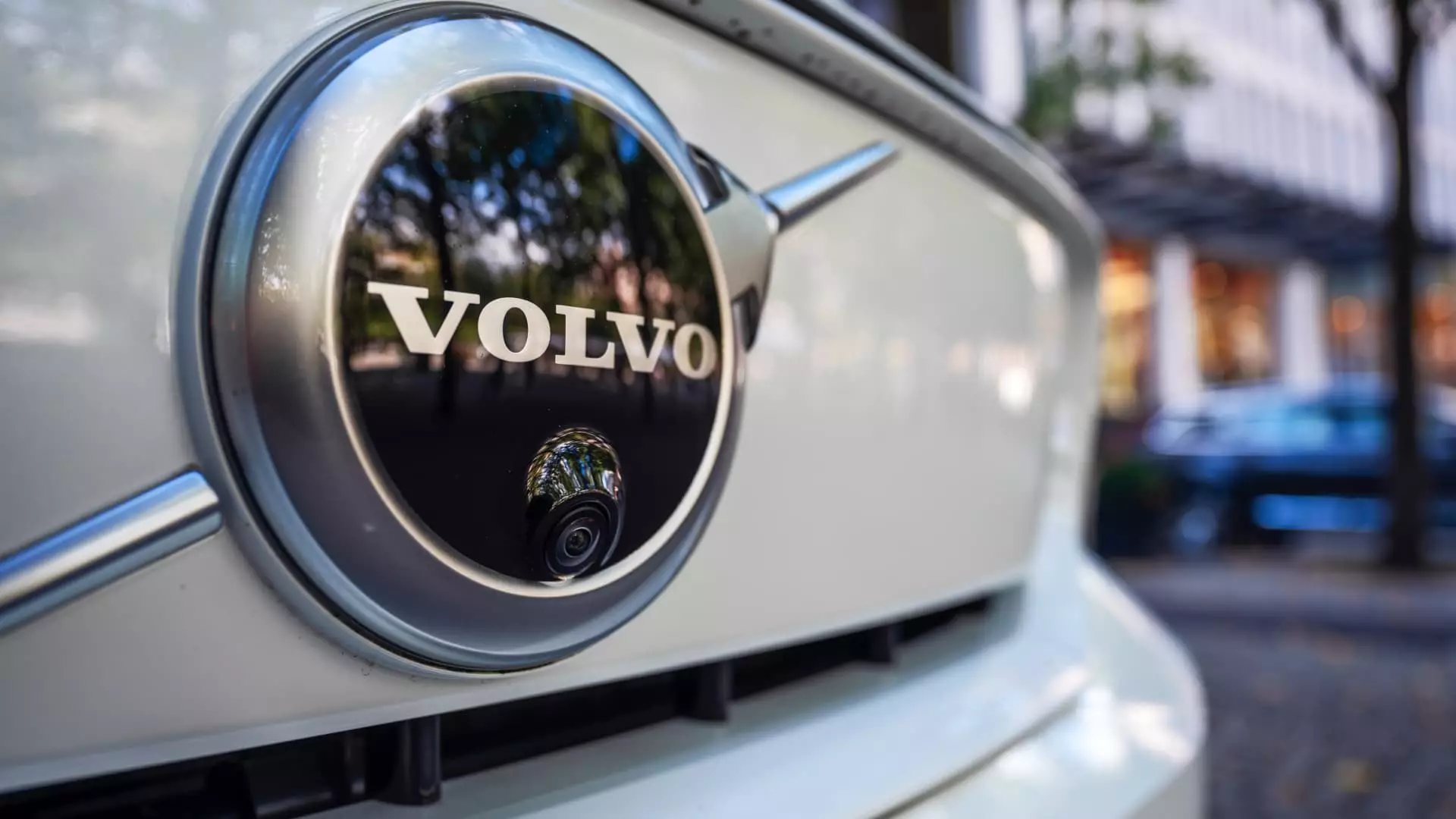In a stark and troubling announcement, Volvo Cars has revealed plans to cut approximately 3,000 jobs, a staggering reduction that highlights the harsh realities of a rapidly evolving automotive landscape. This decision, representing about 15% of its office-based workforce in Sweden, is not just a reflection of corporate strategies but rather an indictment of the broader economic turmoil that has engulfed the global automotive sector. The move comes on the heels of Volvo’s $1.89 billion cost and cash action plan intended to restructure the company during these turbulent times.
Håkan Samuelsson, the president and CEO, has taken a grim stance on this issue, declaring that these actions, while heartbreaking, are necessary for building a “stronger and more resilient Volvo Cars.” But such reasoning raises questions: how resilient can a company truly be if its foundation is built atop the backs of displaced workers? The automotive industry, once a pillar of stable employment, now stands at the precipice of change, faced with unprecedented challenges driven by economic instability and shifting consumer demands.
Consultants and Core Employees
Volvo’s strategies to achieve cost reductions include slashing approximately 1,000 consultancy positions and 1,200 direct employees, with impacts felt not only in Sweden but across various global markets. The focus on office-based job cuts appears to reflect a deeper misunderstanding of the industry’s core strengths—engineering and human talent. While leaner operations may provide short-term financial relief, sacrificing skilled employees is a dangerous gamble that could jeopardize innovation and creative solutions essential for navigating tomorrow’s automotive challenges.
As a leader in transitioning towards electric vehicles (EVs), Volvo must consider the long-term implications of these redundancies. The company’s decision to prioritize cost-cutting over talent retention could hinder its ambitions to lead in the EV market. If innovation is at the heart of successful transitions, eliminating skilled workforce members does not bode well for Volvo’s aspirations. A company can only stay competitive by investing in its human resources, especially when emerging technologies are at stake.
Shifting Market Dynamics and Tariff Unease
Volvo’s realities are firmly intertwined with a global web of trade tariffs and economic tensions, largely influenced by the shifting political landscape. U.S. President Donald Trump’s threats of imposing hefty tariffs on European imports have only exacerbated uncertainties, particularly for automakers reliant on complex international supply chains. The U.S. already enforces a punitive framework against European autos, which continues to create ripples, making it near impossible for companies like Volvo to safely navigate this market without a high degree of foresight.
Indeed, Volvo’s decision to withdraw its financial guidance for 2025 and 2026 underscores the deep-seated fears that navigate today’s corporate decisions. As the automotive industry grapples with the ramifications of such tariffs, companies face a dual challenge: reducing costs while simultaneously striving for growth and sustainability. In a world where taxes on goods can change overnight, how can any company maintain a long-term strategy effectively?
The Tug of War Between Cost-Cutting and Sustainability
Amidst these developments, Volvo aims to position itself as a fully electric vehicle company. However, the company’s recent hesitance to commit strictly to EV sales projections borders on contradictory. This flexibility, touted as a pragmatic response to market conditions, could be interpreted as a retreat from visionary leadership. If major players like Volvo must constantly recalibrate their commitments to sustainability, what does that imply for consumers striving for green solutions?
When a renowned automaker like Volvo chooses to scale back its ambitions, it inadvertently sends a powerful message about the fragility of the EV market. The intention to streamline operations should not come at the cost of green priorities, especially when the planet requires robust action against climate change. Reducing investments in sustainability-focused initiatives to cope with immediate economic distress raises concerns about the sincerity of a commitment to long-term ecological goals.
The necessity for cost-cutting is evident in today’s tumultuous environment, but it should not redefine the very mission upon which forward-thinking companies like Volvo have built their reputations. As stakeholders, employees, and consumers watch closely, it is clear that the future success of Volvo will hinge not just on financial solvency, but also on its ability to inspire trust in its unwavering commitment to sustainable progress.

